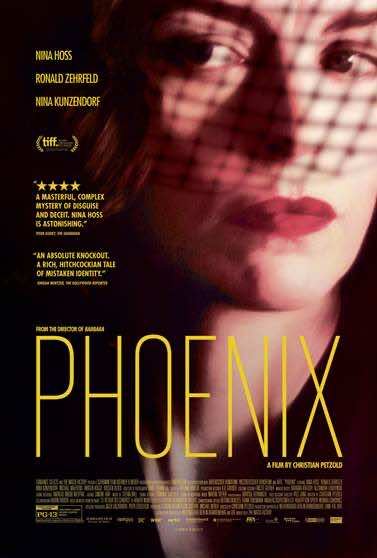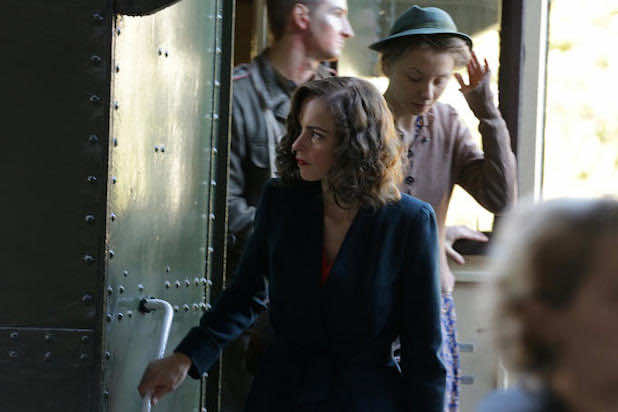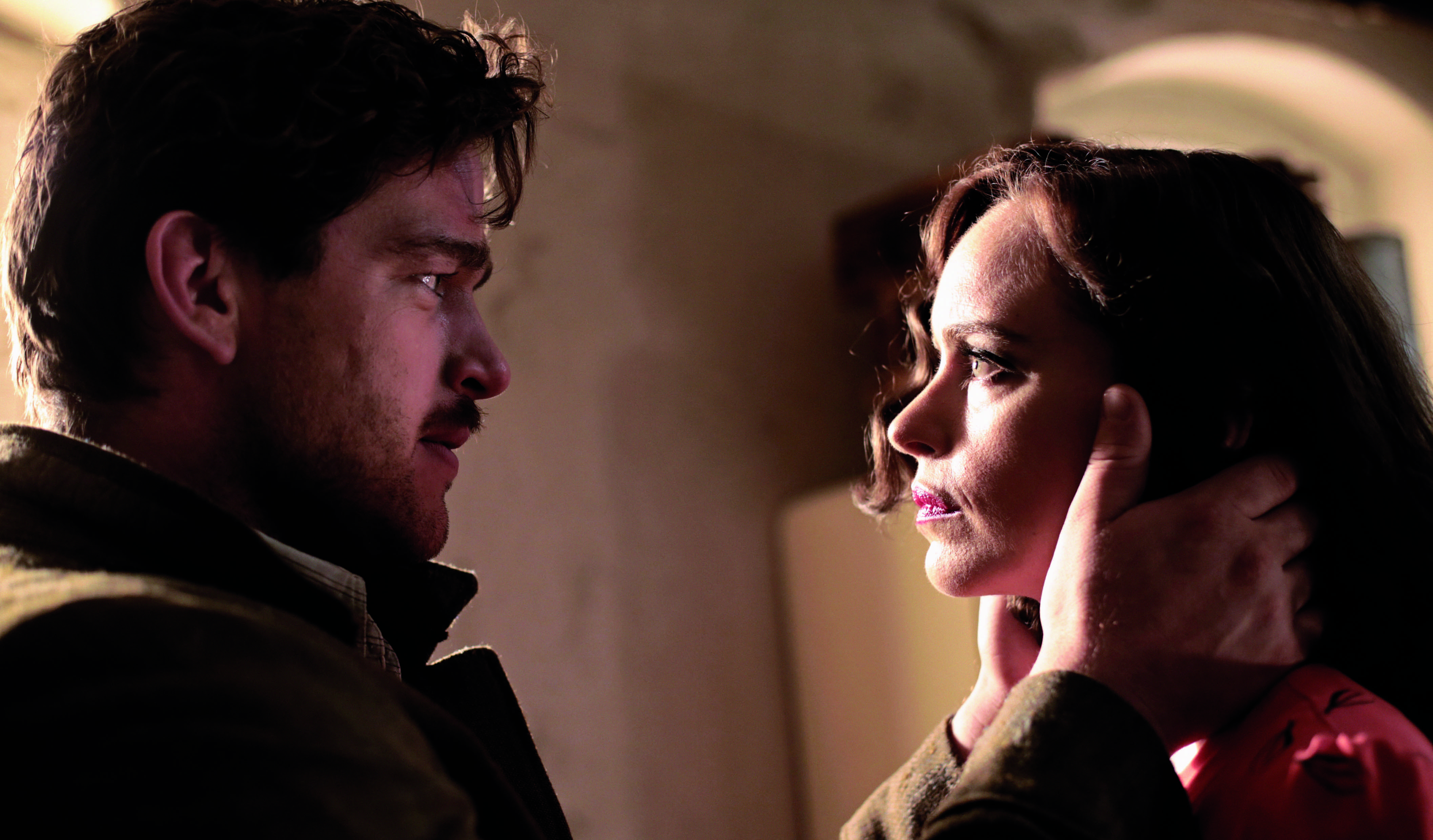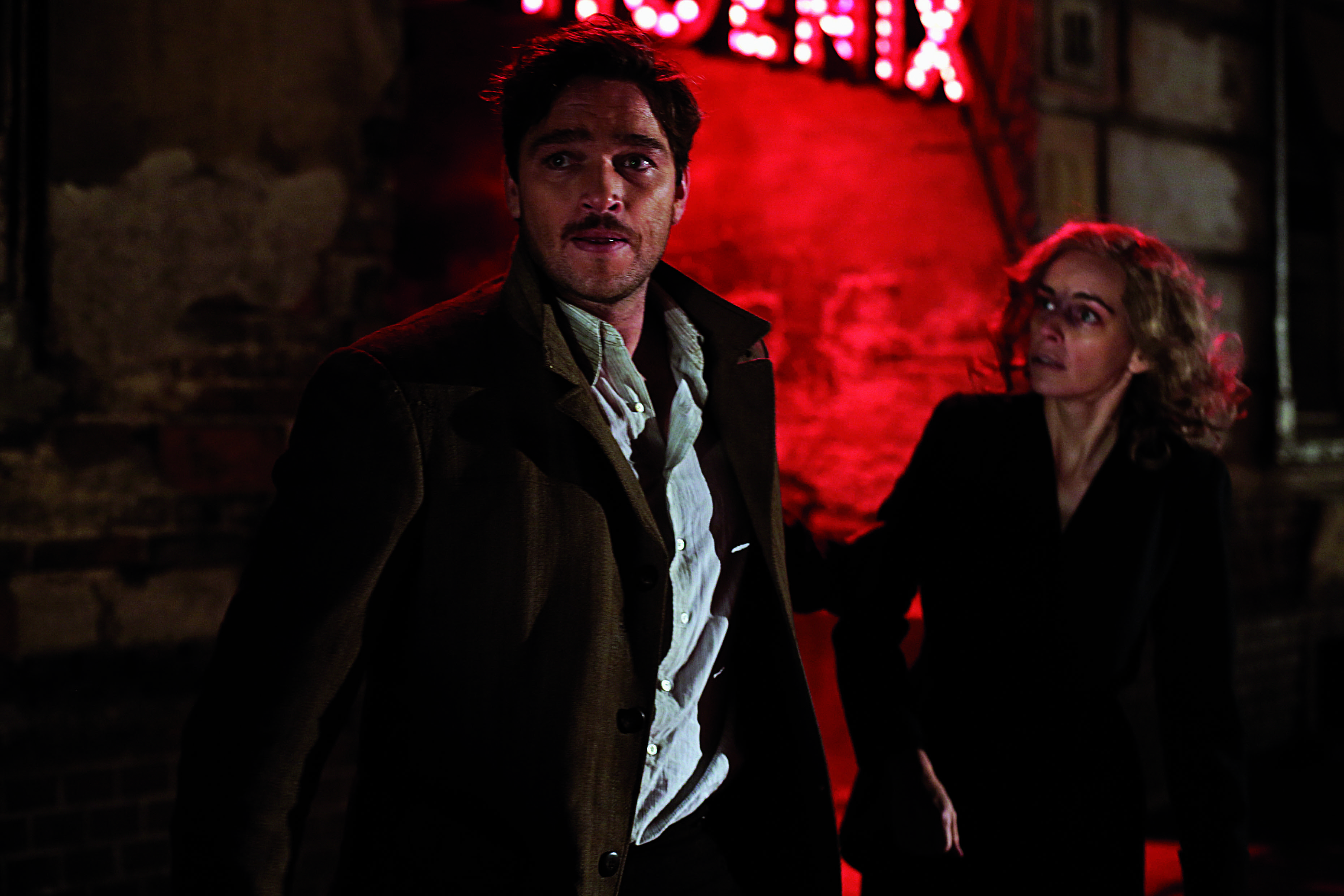 A mystery movie doesn’t always need to have its mysteries hidden away, obliging itself to constantly stringing along the audience with questions and twists. There are other ways to create thrills, and German director/writer Christian Petzold (Film review: ‘Barbara’ – transcending suspicion with grace) has devised an unequivocal experience with Phoenix. Working with regular co-screenwriter Harun Farocki, Petzold has adapted Hubert Monteilhet’s 1961 novel Le Retour des cendres (Return from the Ashes), which already had a bit of a convoluted film adaptation in 1965 by J. Lee Thompson starring Maximilian Schell. Hence, the possible title change.
A mystery movie doesn’t always need to have its mysteries hidden away, obliging itself to constantly stringing along the audience with questions and twists. There are other ways to create thrills, and German director/writer Christian Petzold (Film review: ‘Barbara’ – transcending suspicion with grace) has devised an unequivocal experience with Phoenix. Working with regular co-screenwriter Harun Farocki, Petzold has adapted Hubert Monteilhet’s 1961 novel Le Retour des cendres (Return from the Ashes), which already had a bit of a convoluted film adaptation in 1965 by J. Lee Thompson starring Maximilian Schell. Hence, the possible title change.
There is some elegance in Monteilhet’s original title, which offers a more deliberate reference to where the film’s main character comes from, as a survivor of the Nazi concentration camps. However, Petzold and Farocki have streamlined the story quite a bit, dropping characters, and focusing profoundly on the notion of love and the past, and the two characters at the center of the film, the Jewish singer Nelly Lenz (Nina Hoss, Petzold’s go-to lead actress) who finds several levels of freedom following liberation by the allied forces, and Johnny (Ronald Zehrfeld), her gentile husband, a pianist who performed with her, until the Nazis separated them. He thinks she, as is the case with her entire family, is dead.
Nelly first appears onscreen with her face wrapped in bandages. She is driven into Berlin by the only friend she has left, Lene (Nina Kunzendorf), where a surgeon will help repair her face, a process he clarifies is “not reconstruction” but “recreation.” Though Lene promises Nelly that they will find their true sanctuary in Palestine, Nelly remains obsessed with finding her husband in the ruins of Berlin. Though Lene tells Nelly that Johnny betrayed her to the Nazis, Nelly goes out at night secretly searching. Nelly comes across Johnny working in the maybe too aptly named Phoenix lounge. She takes advantage of her new face to feel him out and introduces herself as Esther. So begins a deception that explores moral character in the wake of an atrocious past.
Lene is desperate to find love again, but the question always lingers whether Johnny loved her to begin with, and if so, what was that loved based on? The answer might seem simple when Johnny notes enough of a similarity in “Esther” to his wife  that he comes up with a scheme to use her. He suggests that she might be able to impersonate Nelly, so he might get his hands on her inheritance. But Phoenix is a much more complicated film than that. Petzold instead has created a film that feels like an inversion of the film noir. The femme fatale is duplicitous, yes, but she loves someone, or an idea of someone, and that someone is a man she is both scamming and scamming for.
that he comes up with a scheme to use her. He suggests that she might be able to impersonate Nelly, so he might get his hands on her inheritance. But Phoenix is a much more complicated film than that. Petzold instead has created a film that feels like an inversion of the film noir. The femme fatale is duplicitous, yes, but she loves someone, or an idea of someone, and that someone is a man she is both scamming and scamming for.
The conflict and irony of her actions is what make Phoenix‘s drama so compelling. It’s in the small moments when Nelly lets out a smile behind Johnny’s back, as he gives her a ride on a bike to their old hiding place. There’s a practicality in his relationship with “Esther” that fills a void for Nelly who wants to be herself in the past, but cannot seem to face her new reality even with a new face. The lack of existence is revealed an intensity that lies in the smallest gestures.
Not only is Petzold working again with his co-writer and Hoss, who again brings a soft-spoke grace to a complicated female character, but also with cinematographer Hans Fromm. Fromm has always had a knack for brightening the dark moods of Petzold’s films, and he does it again in Phoenix. Film noir comparisons would be incomplete without recognizing how this movie plays with shadow and light. From the harsh red neon glow of club Phoenix, the site of Nelly’s rebirth, to her struggles of devotion enhanced by the subtle contrast of shadow and light in the home Nelly and Lene are taken in as lodgers, there is hardly any incidental lighting. There’s also a different kind of light and darkness in the set pieces. There are deep shadows in the ruinous devastation of Berlin that speak to the past of the city as well as that of Nelly and the natural, green bucolic beauty in the still very intact, lakeside mansion where Lene once hid from the Nazis.
An intelligent film with style to spare, Phoenix is driven by a strange mystery, in that it invites the audience to contemplate deception from another angle. Driven by a dramatic irony that lets the audience in on everything, Phoenix becomes something else entirely, much like the main character who finds empowerment in her wounds.
Screening update: By popular demand the following have for Sept. 4:
Aventura Mall 24 Theatres – Aventura
Indian River 24 – Vero Beach
Silverspot at Coconut Creek – Coconut Creek
Last Picture Show 5 – Tamarac
Phoenix runs 98 minutes, is in English and German with English subtitles and is rated PG-13 (it has its disturbing moments). It opens in our South Florida area on the following schedule:
AUGUST 7:
- MDC’s Tower Theater in Miami
- Miami Beach Cinematheque
- Cinema Paradiso Fort Lauderdale
AUGUST 14:
- Bill Cosford Cinema in Coral Gables
- Movies of Lake Worth
- Movies of Delray 5
- Living Room Cinema 4 in Boca Raton
AUGUST 21:
- Silversport Cinema in Naples
- Prado Stadium 12 in Bonita Springs
SEPTEMBER 9:
- Lake Worth Playhouse
It first premiered in Miami at the Miami International Film Festival. IFC Films shared a DVD screener for the purpose of this review. All images are courtesy of Christian Schulz for IFC Films.











